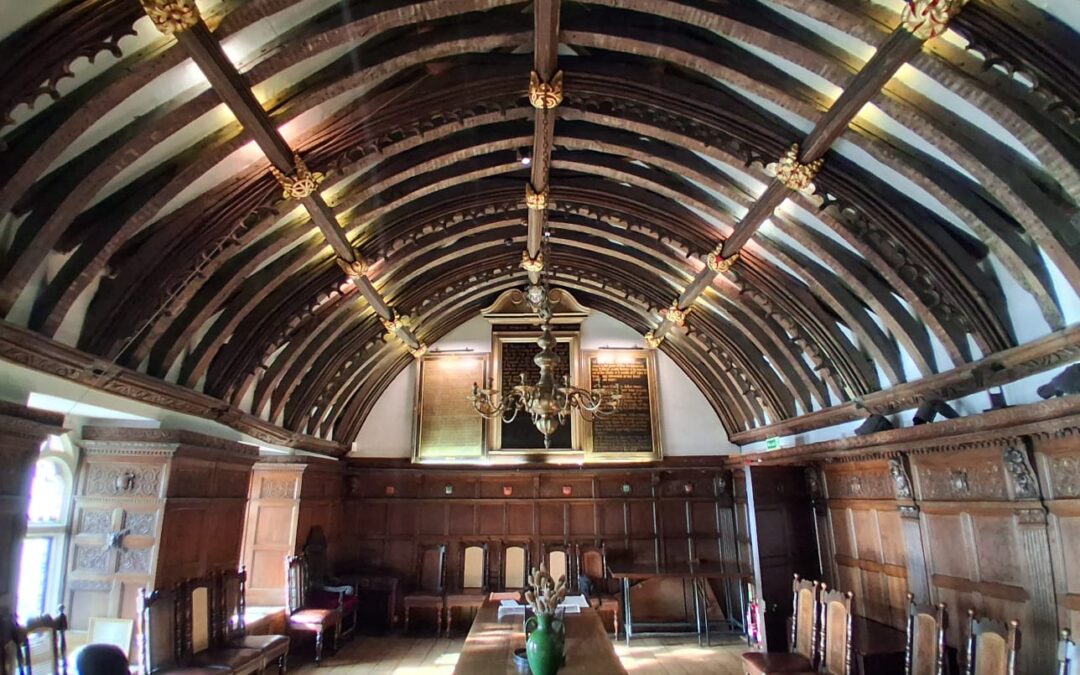With the king’s seal of approval, sorry I mean, Royal Charter, Exeter flourished, and the excellence of their product propelled the city into the golden days. It became the 3rd most important city outside of London.
After the turbulent times of the English Civil War the impact of the golden age was fully felt as developments within the city such as a provincial bank was built (first outside of London), and a navy was created to protect and export their product. I’m sure a visit to the Exeter quay will be enlightening.
In 1634 oak panelling was installed to hide the wall paintings just prior to when the Civil War broke out. The Civil War was negotiated, with the city loyal to the Royal cause. Further research may prove if the charter brought loyalty from members of the guild to the crown.
In Exeter’s golden age there was an increase in production to a staggering 1,000 pieces of cloth being produced a day. That resulted in around 400 master craftsmen belonging to the guild. Exeter’s importance as the 3rd city in England was confirmed by producing about 25% of the country’s woollen cloth. 70% of Exeter’s population was employed or in associated trades with the Cloth industry.

